UN chief condemns ‘devastating strike’ on Gaza school
- Details
- Category: World Hot News
- Published: Monday, 12 August 2024 17:10
- Written by Gentry
 © UNRWA Much of the Gaza Strip has been destroyed in the conflict.
© UNRWA Much of the Gaza Strip has been destroyed in the conflict.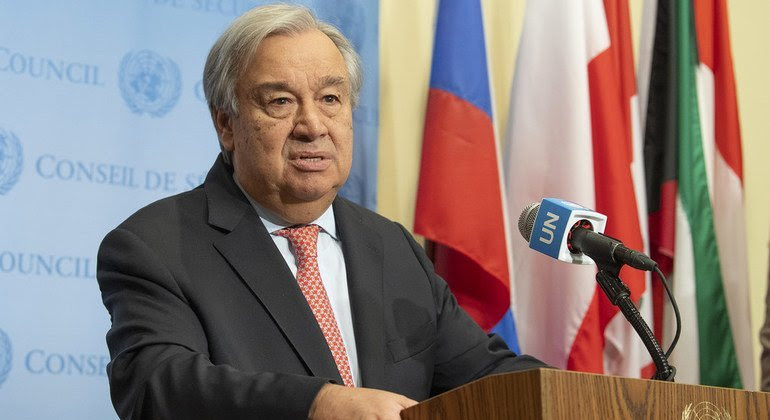 UN Secretary-General António Guterres has deplored a deadly weekend attack on a Gaza school-turned-shelter, his Office said on Monday.
UN Secretary-General António Guterres has deplored a deadly weekend attack on a Gaza school-turned-shelter, his Office said on Monday.
“The Secretary-General condemns the continued loss of life in Gaza, including women and children, as we witness yet another devastating strike by Israel on the Al-Taba’een school in Gaza City, sheltering hundreds of displaced Palestinians families, with scores of fatalities, amidst continued horror, displacement, and suffering in Gaza,” said UN Deputy Spokesperson Farhan Haq.
The incident occurred on Saturday and at least 100 people were killed, according to international media reports, which cited the Gaza health authorities.
Local hospital ‘overwhelmed’
At the time of the attack, people were performing the dawn prayer at the school’s prayer hall.
Casualties were brought to Al Ahli hospital - among the 16 hospitals that remain only partially functional in the Gaza Strip – which is “overwhelmed by this mass casualty incident amid shortages of medications, clean water and beds,” Mr. Haq told journalists.
Humanitarian partners on the ground helped families who returned to the school, providing drinking water, food parcels, hot meals, hygiene kits and clothing, as well as psychological first aid and psychosocial support activities for children and their parents.
According to the UN human rights office, OHCHR, this is at least the 21st strike on a school, each serving as a shelter, since 4 July, which have resulted in at least 274 fatalities, including women and children.
Implement resolution on ceasefire deal
Mr. Haq said the Secretary-General was dismayed to see that provisions of UN Security Council resolution 2735 (2024) remain unimplemented.
Adopted in June, the resolution proposes a comprehensive three-phase ceasefire deal between Hamas and Israel to end the war in Gaza, now in its 10th month.
The first phase would include an immediate, full and complete ceasefire with the release of hostages; the return of the remains of some hostages who have been killed, the exchange of Palestinian prisoners, withdrawal of Israeli forces from populated areas in Gaza, the return of Palestinian civilians to their homes, and the safe and effective distribution of humanitarian assistance at scale throughout the enclave.
The second phase calls for a permanent end to hostilities in exchange for the release of all other hostages in Gaza and a full withdrawal of Israeli forces from the area, while phase three would see the start of a major multi-year reconstruction plan for Gaza and the returns of the remains of any deceased hostages still there to their families.
Mediation efforts welcomed
Mr. Haq said the UN chief welcomes the mediation efforts of the United States, Egypt, and Qatar leaders, and urges both sides to rejoin negotiations and conclude the ceasefire and hostages release deal.
Mr. Guterres reiterated his urgent appeal for an immediate ceasefire and the unconditional release of all hostages, while again underscoring the need to ensure both the protection of civilians and unimpeded and safe humanitarian access into and across Gaza.
“The Secretary-General underlines that international humanitarian law, including the principles of distinction, proportionality, and precautions in attack, must be upheld at all times,” he concluded.
Re-commit to the ‘Rules of War’: UNRWA chief
Separately, the head of the UN Palestine refugee agency, UNRWA, upheld the need to protect civilians, civilian infrastructure, detainees and humanitarians amid armed conflict.
Writing on the social media platform X, UNRWA Commissioner-General Philippe Lazzarini recalled that Monday marked 75 years since the Geneva Conventions – “the universal ‘Rules of War’” - were put in place to protect civilians caught in the crosshairs.
Mr. Lazzarini said the Geneva Conventions are “the one set of rules we ‘all agree on’”, though he questioned if that indeed were the case.
“In the past 10 months, these rules have been blatantly broken day in, day out in Gaza by the Israeli Forces as well as the Palestinian armed groups including Hamas,” he said.
“More concerning, Member States - party to the Geneva Conventions - have failed in their responsibilities to respect the conventions and ensure that parties to the conflict respect them under all circumstances.”
Legal compass
Mr. Lazzarini warned that “our shared values enshrined in the Conventions are at stake as is our shared humanity.”
He stressed that it is time to re-instate those values and re-commit to the Geneva Conventions.
“They are the compass of international humanitarian law,” he said. “The basics still apply: Civilians, women, children, detainees must be protected. Schools, hospitals, people’s homes, humanitarian and UN staff, facilities and operations must be protected.”
Find out more about the Geneva Conventions in our explainer outlining what international humanitarian law is and why it matters.
Latest evacuation orders
Meanwhile, the UN Office for the Coordination of Humanitarian Affairs (OCHA) said the Israel military issued two evacuation orders over the weekend for Khan Younis, mostly for areas that were previously placed under evacuation.
Initial mapping indicates that the areas affected encompass about 23 displacement sites, 14 water, sanitation and hygiene facilities, and four educational facilities.
In total, about 305 square kilometres, or nearly 84 per cent of the Gaza Strip, have been placed under evacuation orders since war erupted last October.
Additionally, the UN Satellite Centre (UNOSAT) recently reported that 63 per cent of all structures in Gaza have been damaged or destroyed.
“Once again, we call for all parties to the conflict to respect their obligations under international humanitarian law, including by taking constant care to spare civilians and civilian objects,” OCHA said.
“This includes allowing civilians to leave for safer areas and allowing their return as soon as circumstances allow. People must be able to receive humanitarian assistance, whether they move or stay.”
Lebanon deaths rising
The humanitarian agency also expressed deep concern over the increasing number of civilian deaths and rising displacement in Lebanon, amid escalating hostilities between Hezbollah and Israel.
Over the past month, the numbers of civilians killed has increased by 20 per cent – to a total of 120 since October. Nearly half were women and girls.
Furthermore, civilian infrastructure has been repeatedly targeted. More than a dozen water stations have been damaged, with four now non-functional, according to the UN Children’s Fund (UNICEF). The situation is affecting access to safe drinking water for more than 200,000 people.
UN agencies and partners continue to scale up relief efforts, in support of the Government-led response.
The World Health Organization (WHO) recently delivered 32 tonnes of trauma and emergency surgical kits, as well as medications.
Similarly, UNICEF has distributed 65 tonnes of emergency kits, including medications and medical supplies, as part of their efforts to pre-position critical assistance.
The UN Security Council is due to meet once again to discuss the continuing crisis in Gaza on Tuesday afternoon in New York.



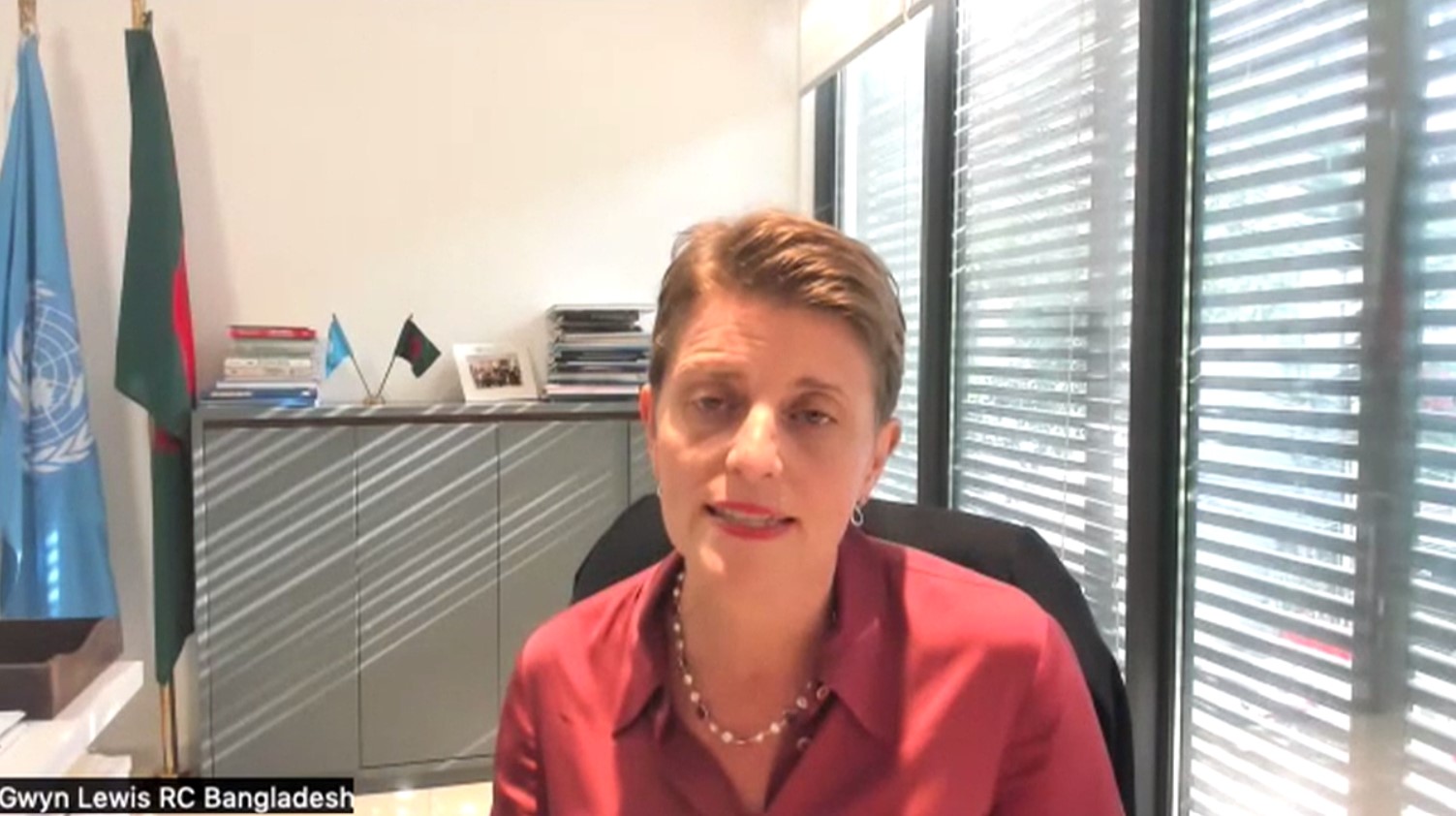
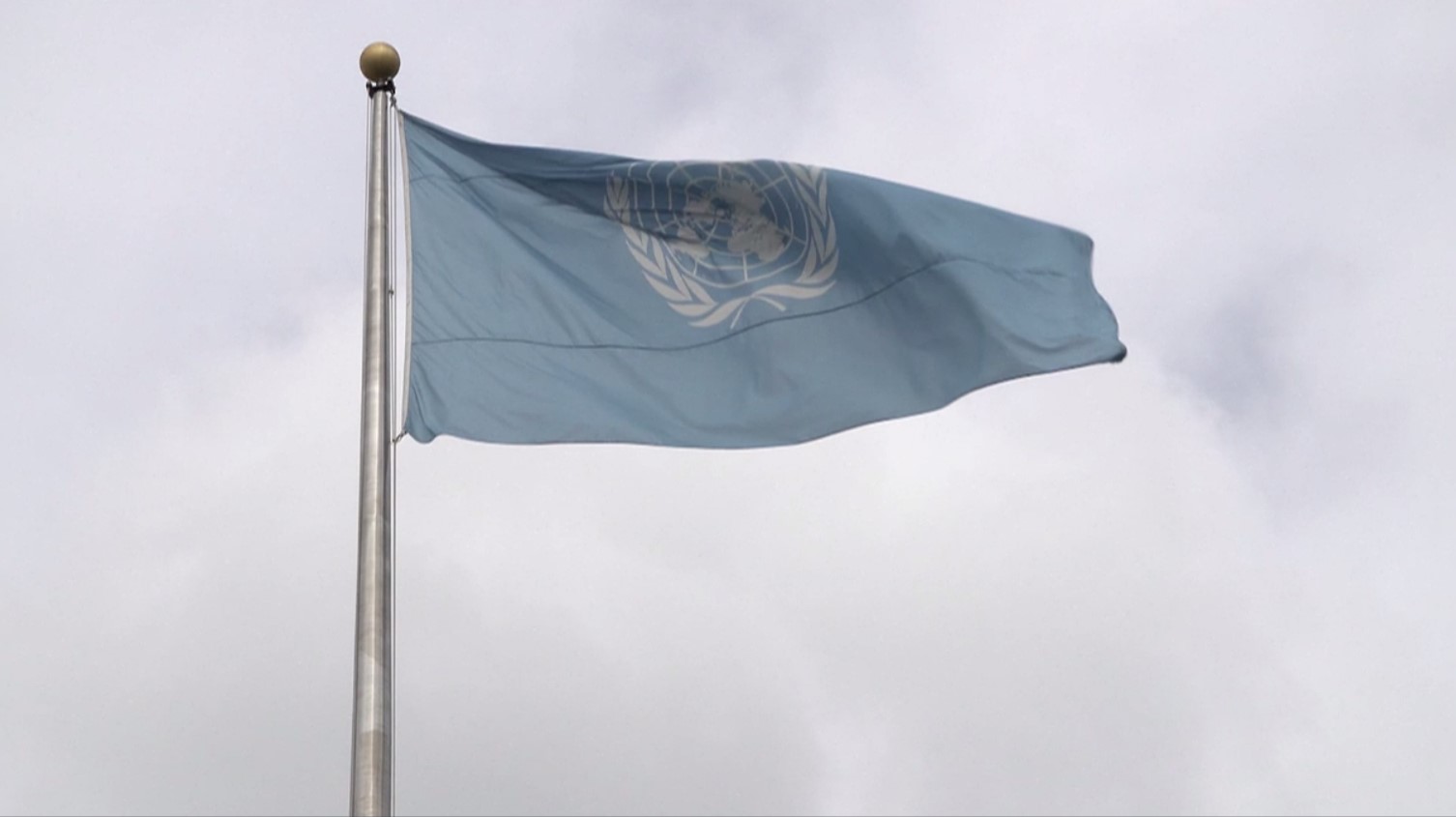
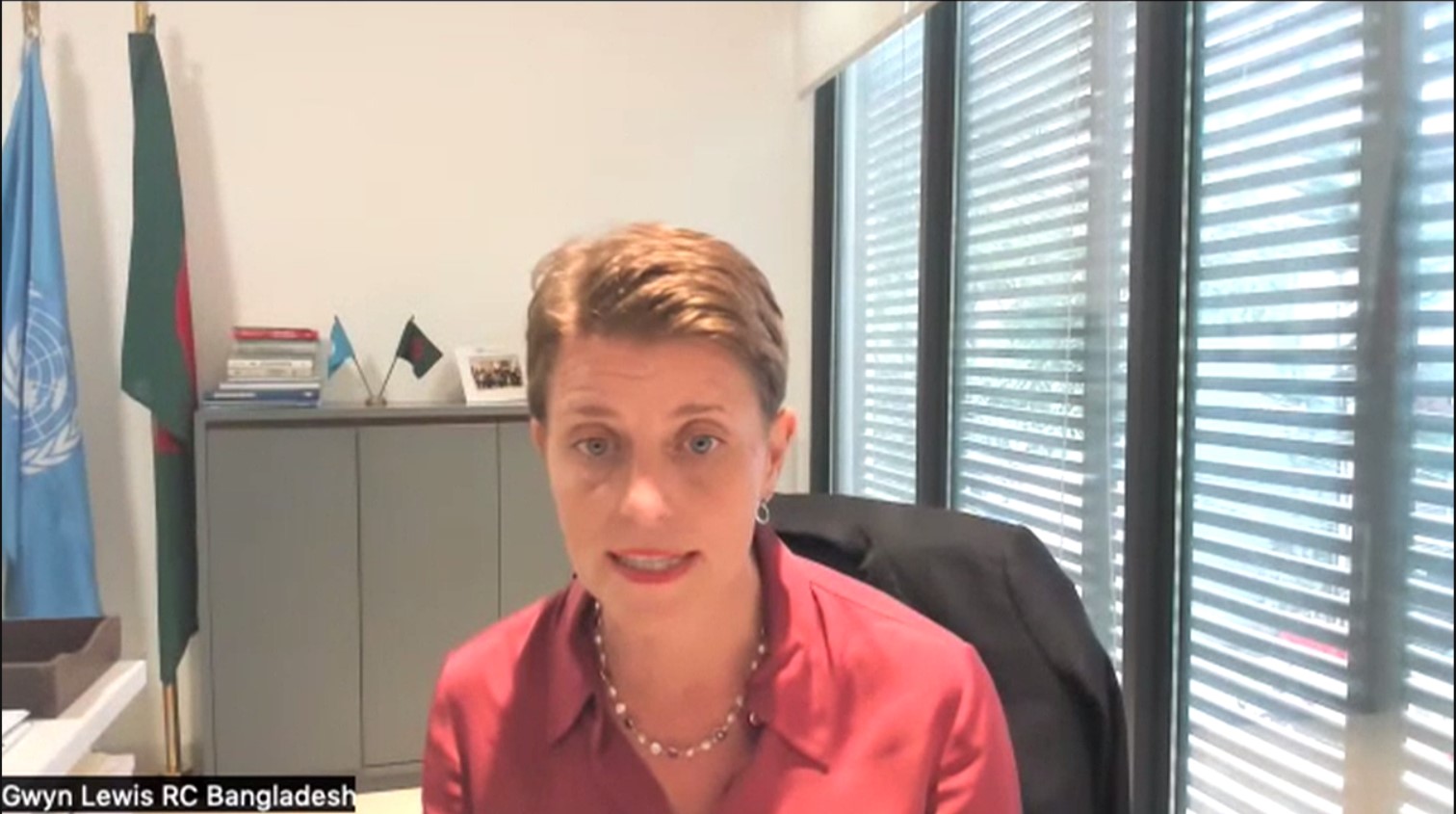
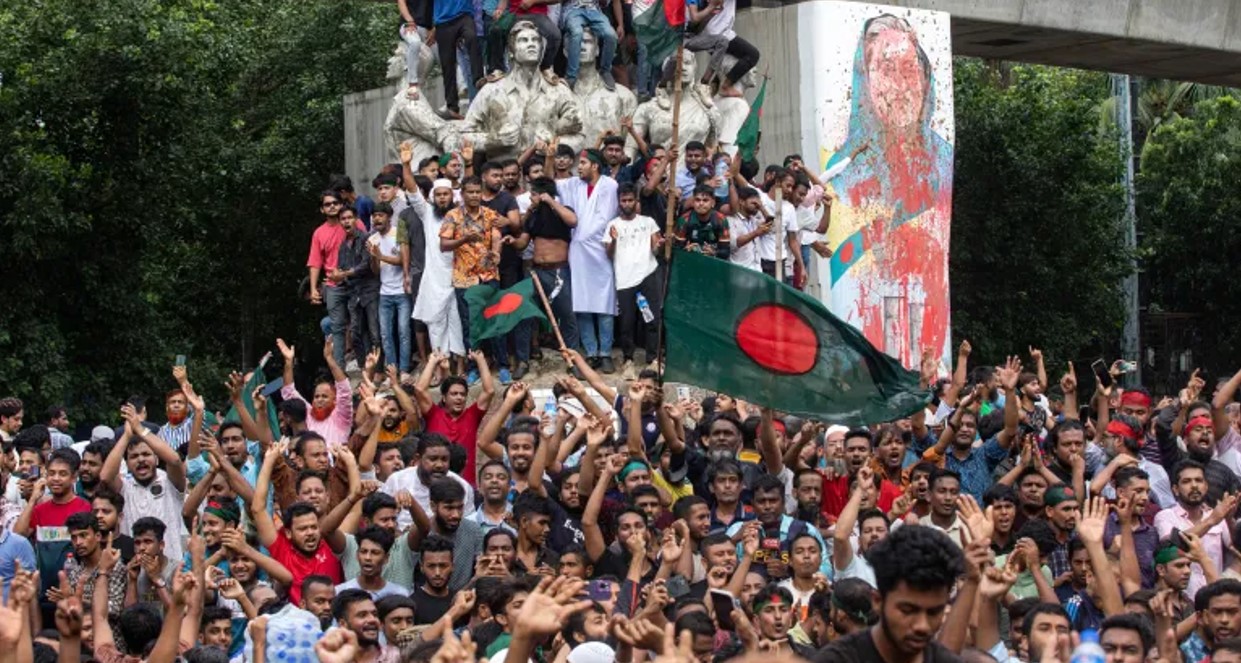
 UN Photo/Loey Felipe A wide view of the UN Security Council meets on the situation in the Middle East.
UN Photo/Loey Felipe A wide view of the UN Security Council meets on the situation in the Middle East. UN Photo/Loey Felipe Rosemary DiCarlo, Under-Secretary-General for Political and Peacebuilding Affairs, briefs the Security Council.
UN Photo/Loey Felipe Rosemary DiCarlo, Under-Secretary-General for Political and Peacebuilding Affairs, briefs the Security Council. UN Photo/Eskinder Debebe Ambassador Amir Saeid Iravani of Iran addresses the Security Council meeting on the situation in the Middle East, including the Palestinian question.
UN Photo/Eskinder Debebe Ambassador Amir Saeid Iravani of Iran addresses the Security Council meeting on the situation in the Middle East, including the Palestinian question. UN Photo/Eskinder Debebe Ambassador Feda Abdelhady, Deputy Permanent Observer of the State of Palestine to the United Nations, addresses the Security Council meeting on the situation in the Middle East, including the Palestinian question.
UN Photo/Eskinder Debebe Ambassador Feda Abdelhady, Deputy Permanent Observer of the State of Palestine to the United Nations, addresses the Security Council meeting on the situation in the Middle East, including the Palestinian question. UN Photo/Loey Felipe Brett Jonathan Miller, Deputy Permanent Representative of Israel, addresses the Security Council meeting on the situation in the Middle East, including the Palestinian question.
UN Photo/Loey Felipe Brett Jonathan Miller, Deputy Permanent Representative of Israel, addresses the Security Council meeting on the situation in the Middle East, including the Palestinian question. UN Photo/Eskinder Debebe Ambassador Koussay Aldahhak of Syria addresses the Security Council meeting on the situation in the Middle East, including the Palestinian question.
UN Photo/Eskinder Debebe Ambassador Koussay Aldahhak of Syria addresses the Security Council meeting on the situation in the Middle East, including the Palestinian question. UN Photo/Eskinder Debebe Ambassador Hadi Hachem Lebanon addresses the Security Council meeting on the situation in the Middle East, including the Palestinian question.
UN Photo/Eskinder Debebe Ambassador Hadi Hachem Lebanon addresses the Security Council meeting on the situation in the Middle East, including the Palestinian question.



 © IOC/Greg Martin UN Secretary-General António Guterres (left) and Thomas Bach, President of the International Olympic Committee (IOC), in Paris ahead of the opening of the Paris 2024 Summer Olympic Games.
© IOC/Greg Martin UN Secretary-General António Guterres (left) and Thomas Bach, President of the International Olympic Committee (IOC), in Paris ahead of the opening of the Paris 2024 Summer Olympic Games. © IOC/Greg Martin The 2024 Refugee Olympic Team Paris is presented by Chef de Mission Masomah Ali Zada at the Palais des Congrès, Grand Amphithéâtre.
© IOC/Greg Martin The 2024 Refugee Olympic Team Paris is presented by Chef de Mission Masomah Ali Zada at the Palais des Congrès, Grand Amphithéâtre.